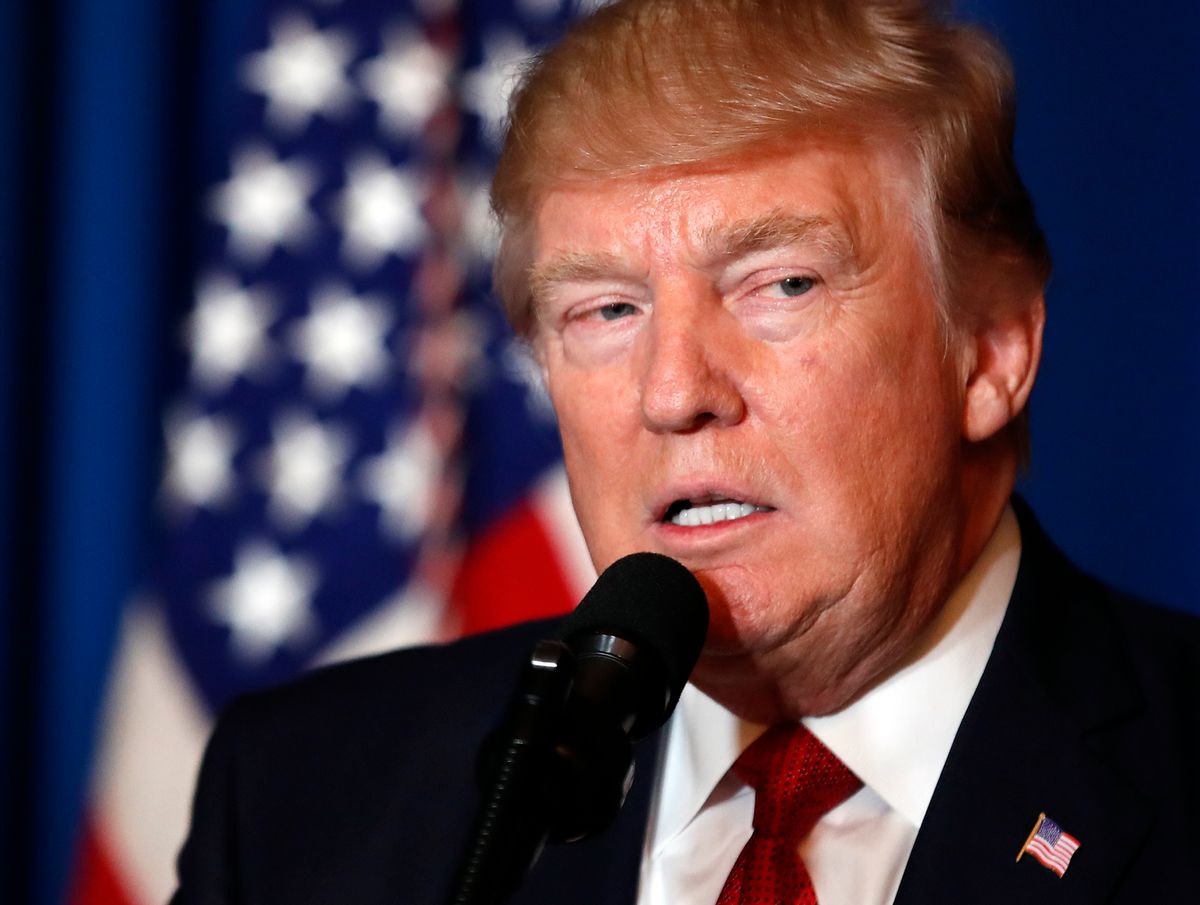In an attempt to deflect from the failures and delays of his first 100 days, President Donald Trump over the weekend called the rules governing Congress “a very, very bureaucratic system” that is “unbelievably archaic and slow-moving."
It was the latest signal from Trump that he does not respect our constitutional system of checks and balances. In previous interviews, he’s also blasted the news media, the peaceable assembly of protesters and independent judges.
As a former federal prosecutor, criminal defense attorney and now a civil rights lawyer, I’d like to note that Trump is right that our system of government is “bureaucratic” and “slow-moving.” He’s also correct in noting that the media can be combative and that many judges are “unelected.”
He’s just wrong in saying those are bad things. In fact, they’re all good.
When I worked as a federal prosecutor, I came to realize that we had significant power. We could make choices about which arrests to prosecute and when to offer a plea deal. But no matter how much power we had, we still had to contend with judges and juries.
That meant I had to prove my case beyond a reasonable doubt — no small feat. And this meant that overwhelming evidence from solid witnesses was needed to persuade skeptical jurors. I will never forget the feeling — both as a prosecutor and a defense attorney — of seeing two U.S. marshals come stand behind a defendant who was just found guilty, waiting to escort him back to the holding cells behind the courtroom.
In those moments, the power of the government became visible. These officers, with their pepper spray and handcuffs and guns, were there to deprive someone of their liberty, but only with the permission of a judge and a jury of the person's peers.
I remember one case I handled as a defense attorney involving the father of a young boy. He had struggled in the past with drug addiction but had overcome that and was working a construction job. He was arrested when police claimed they saw him flick a cigarette that tested positive for heroin into someone’s yard.
My client denied the charge, saying it was a regular cigarette. I visited the yard and found it was littered with dozens of other butts. We pressed the prosecutors to turn over any evidence they had, including photos that officers claimed they had taken of the yard.
In that case, the system was “slow-moving.” It was “bureaucratic.” As a prosecutor, I might have found the request for evidence frustrating, but I would never have thought that it was harmful.
Speed is the enemy of justice. There’s a reason for the phrase “rush to judgment.” Our system of government is supposed to be slow and deliberate. That doesn’t make it archaic. It makes it fair.
I visited my client and his mother in their neat home multiple times. They dutifully came to each court appearance. I ultimately got the case dismissed because prosecutors failed to turn over pictures of the yard that we repeatedly requested from the government — ones that officers had claimed that they had taken. My client walked free with his elated and teary mother. The last time I talked to them, he was still working his construction job, was in an apprentice program and had custody of his son on the weekends. Without the burden imposed upon the government, this father likely would have been jailed and suffered the life-altering consequences that would have followed. Checks and balances have real consequences on real people.
Here’s another example I witnessed. In my firm we represent pregnant woman and caregivers facing problems at work. One of the laws offering protection — particularly to pregnant woman — is the Americans with Disabilities Act. The ADA can make it possible for women with high-risk pregnancies to stay at work by requiring employers to make simple workplace changes, like allowing for a temporary lifting restriction or more frequent breaks. Do you think employers would do this voluntarily? Think again because many won’t. In a highly publicized case, Wal-Mart fired a pregnant employee for simply keeping a water bottle beside her, even though her doctor recommended that she drink a lot of water.
For many years, the Supreme Court took an increasingly narrow view of what types of conditions are protected by the law, culminating in the Toyota Manufacturing case, in which the court found that the act covered only severe conditions. This resulted in many courts rejecting lawsuits brought by employees (often after expensive litigation), finding that their conditions were not “substantially limiting.”
Not so, decided Congress, and in 2008 it amended the law effectively overruling the Supreme Court, opening up the ADA to a much broader group of people, many of whom badly need its protections — for instance, the woman whose job I was able to save when her employer finally agreed to give her the time off from work to recover from postpartum depression. This would not have happened in a system without checks and balances, one in which Congress could check the Supreme Court, and vice versa.
It may come as a surprise to our president. But that’s how our system is supposed to work. Forcing prosecutors to prove their cases, allowing both lawmakers and judges to play their part in deciding what becomes a law, dealing with the pressures of the news media — are those really “bad things” for the country? I don’t think so.



Shares